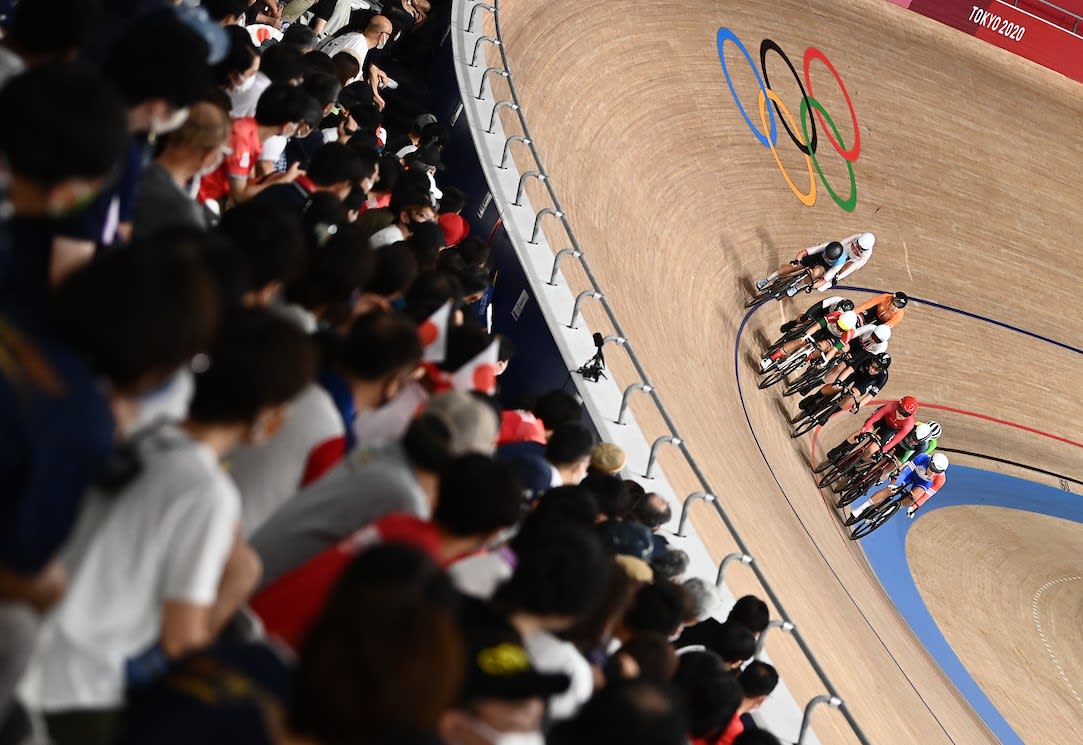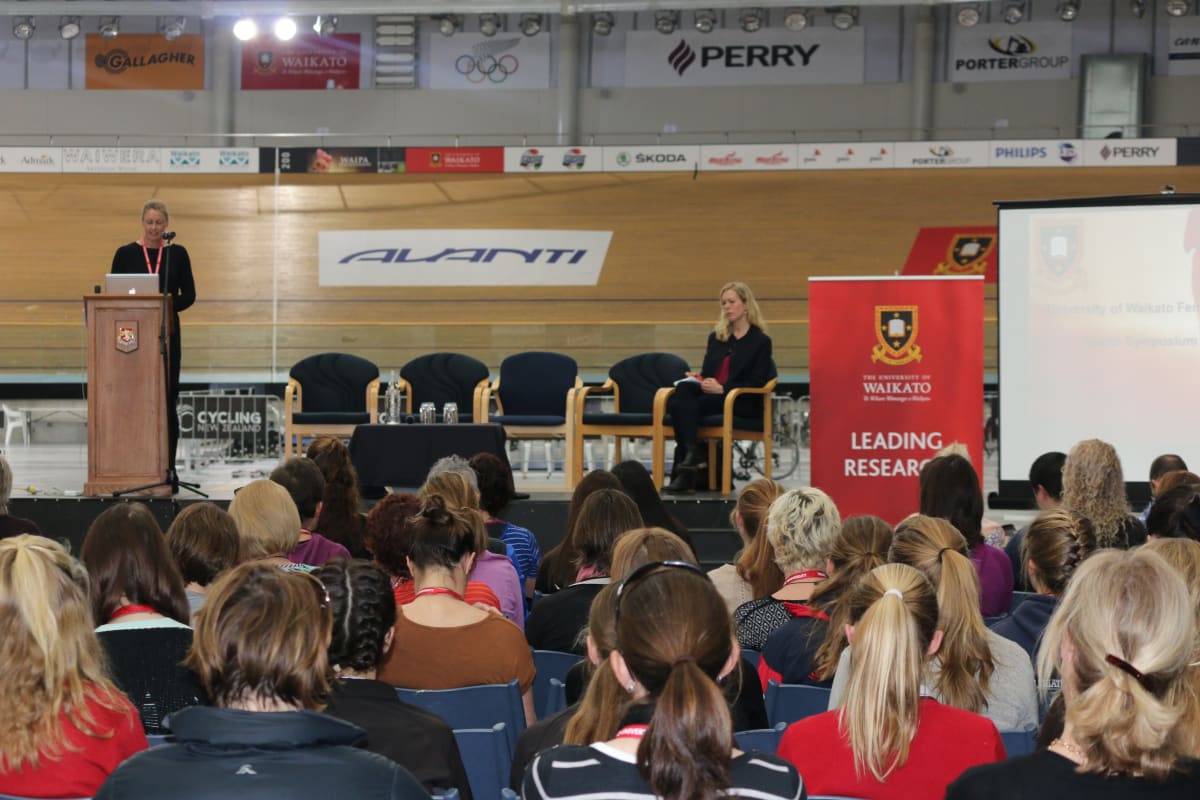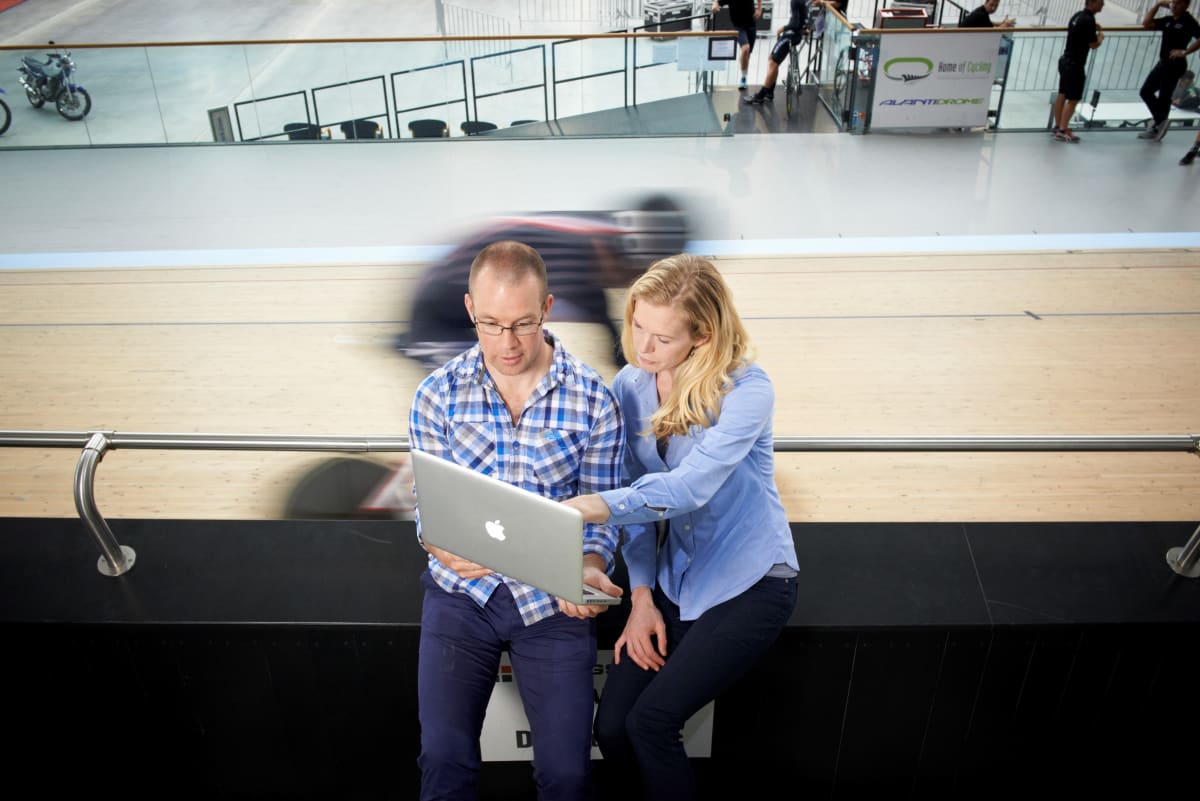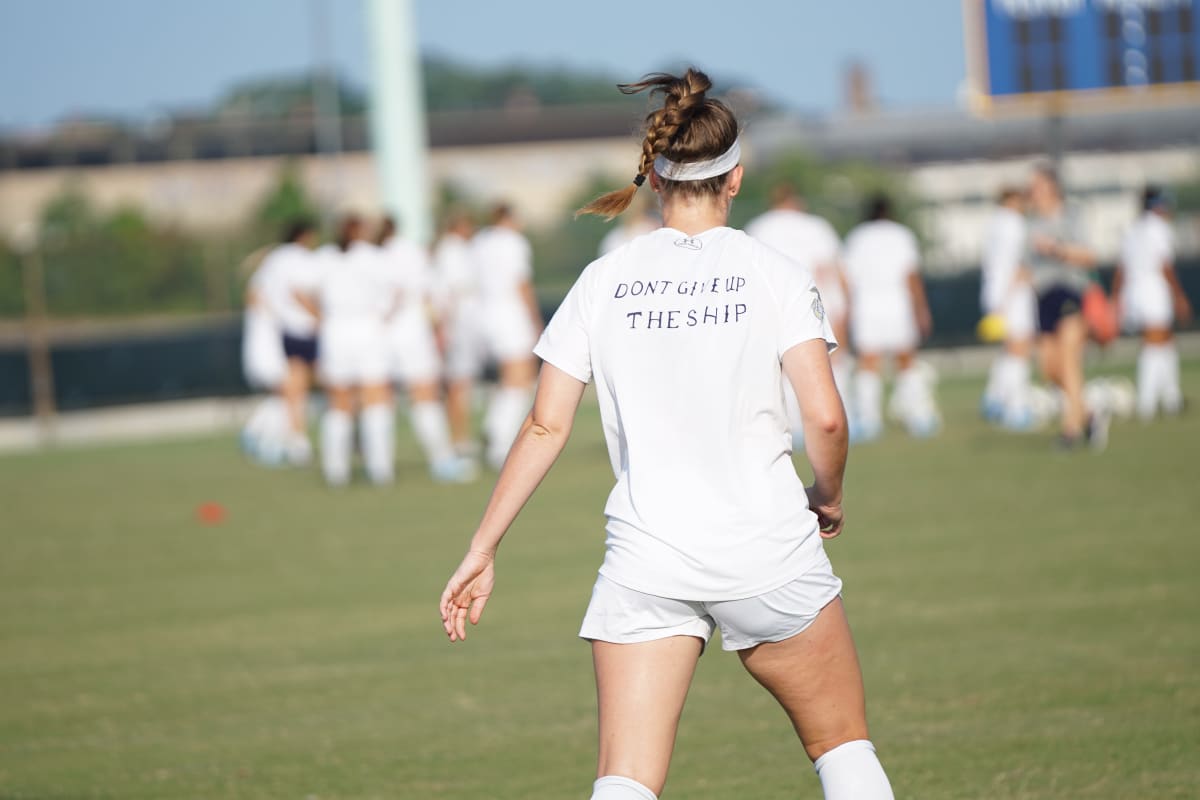
After a decade of research, advocacy and outreach for female athlete health by NZ experts, why are sports organisations not listening and still failing our women? Dr Holly Thorpe writes.
On the afternoon the Cycling New Zealand and High Performance Sport NZ review was released, I was overcome with emotion.
Sadness at the devastating loss of an incredible young athlete; frustration to see so much familiarity in the review findings and recommendations; and anger that so much of this was preventable. And of course, this is nothing compared to the grief being experienced by Olivia Podmore’s family and friends.
I am appreciative of the effort of those who conducted the inquiry and those who bravely shared their stories. This is hard work, and I know those who conducted the review did so feeling the full weight of the responsibility of the task.
Despite an extensive process, the findings and the recommendations in the review are not surprising. Some have noted that they’re almost identical to previous reviews into other sports organisations.
The question that lingers with me, however, is why - after almost a decade of research, advocacy, education and outreach - are sports organisations still failing to adequately support female athlete health and prioritise athlete wellbeing over medals? And why are they demonstrating so many characteristics of toxic sporting cultures (i.e. abuses of power, athletes feeling unsafe to report concerns and vulnerabilities)?
As I reached out to my colleagues, some who remain in the elite sporting environment and have been working towards change for many years, I realised that I was not alone in these feelings of bewilderment and disappointment.
Widely acknowledged as a leader in female athlete health and performance, Dr Stacy Sims - author of top-selling book, ROAR, and recently published Next Level - identified a ‘disconnect’ between best practice and the realities being lived by sportswomen.
"There are some good things happening from boots on the ground,” she told me. “Coaches have reached out to me, asking me how to implement initiatives to better support the health of their sportswomen. I also have parents reaching out to me on a regular basis who are worried about their daughters.
“So, we work together to support them back to health and performance. It is amazing to see how they thrive with this kind of support.”
But she’s also seeing is an “incredible disconnect” here.
“They are reaching out because the system is failing so many women athletes. I find it extremely frustrating that the athletes, the sport physiologist and some of the newer coaches are reaching out for information, help, advice on simple things that HPSNZ should be taking care of."

Preferring to remain anonymous, one health professional working in the elite sport environment similarly identified a ‘disconnect’ between knowledge and action.
“It's striking and very sad what a disconnect there appears to be. A great deal of work into women's health and wellbeing have been put in place by HPSNZ and the surrounding medical community with the WHISPA group passionately driving this, researching, running seminars, workshops,” they said.
“Cycling staff have been turning up to some of these to help educate themselves to help their athletes more. Perhaps the health interventions and projects may not be reaching the athletes and those in need, but why is this?”
For those of us who have been working for almost a decade (and more for some) to raise awareness and understanding about the importance of building healthy and supportive cultures for our sportswomen to thrive (not just survive), these are the questions that continue to haunt us.
Looking back to move forward: Silences and oversights
The recommendations for more investment in female athlete health support, more holistic approaches to athlete wellbeing, rethinking priorities and values, and readdressing gender inequities, are nothing new.
In fact, so many people have been working hard for years to identify and address these issues. The messages have been there all along, so why were those with the power to make a difference not listening, not engaging, not leaning into processes of change?
Let’s go back to 2015, to a two-day symposium on female athlete health hosted at the Home of Cycling in Cambridge. This was a world-first event organised by myself and sports scientist Dr Joe McQuillan.
The aim was to create a safe space to talk about female athlete health and wellbeing (as it relates to their performances and beyond), to build networks and relationships, and to empower through education.

Bringing together over 200 athletes, coaches, researchers and health professionals (doctors, physiotherapists, psychologists, nutritionists), we identified some of the biggest problems facing women in sport and brainstormed strategies for change.
We hosted two more - in Tauranga in 2017 and Auckland in 2019. Each event sold out, and with female athlete health firmly on the agenda we started to see the dial shifting, if ever so slowly.
But progress has been uneven; whereas some embraced this knowledge, others turned away, seemingly preferring not to know.
A working group for change
After the first symposium, Dr Bruce Hamilton founded the HPSNZ working group, WHISPA (Healthy Women in Sport: A Performance Advantage). He saw the need for an explicit focus on female athlete health and better support for women in elite sport environments.
He was visionary in the way he brought a multi-disciplinary group of experts together, always focused on our shared purpose and worked hard to guide us through unchartered waters.
I feel honoured to have been part of the WHISPA group from its establishment in 2017. We’ve built strong relationships across disciplines and continue to come together (despite many challenges), committed to create change for sportswomen. Yet the broader engagement and investment in the WHISPA initiative has been partial and piecemeal, at best.
Largely based on volunteer hours, the WHISPA group has given information sessions at many schools and to groups of athletes across the country. We produced an array of resources - short webinars and information sheets - specifically designed for athletes, coaches and parents.
Some of these resources speak to the very topics addressed in the CNZ report, including menstrual health, body image issues, and building healthy sporting cultures where sportswomen feel safe to express their concerns and vulnerabilities.
As a team, we put a case to HPSNZ for investing in a medical expert specifically supporting the health needs of sportswomen. And there’s much excitement with the recent appointment of Dr Helen Fulcher to this important role.

In 2020, the WHISPA team conducted a survey of 219 elite sportswomen to better understand their health experiences. It identified many of the concerns raised as recommendations in the report.
Many sportswomen didn’t feel comfortable talking to male coaches and support staff about female-specific health issues, like menstruation. And 73 percent felt their sports were putting pressure on them to ‘look’ a particular way that was damaging to their health and wellbeing.
The conclusion of the research published in an international journal was clear.
“Barriers to communicating female health issues included male coaches and support staff, and lack of quality information pertaining to health. Elite female athletes may fail to reach peak performance due to specific health issues and undiagnosed pathology. Sociocultural factors influence the effectiveness of support of female's health and performance. Organisational and cultural change is required if elite female athletes are to combine optimal health with best performance”.
This research was shared widely across HPSNZ and national sports organisations. The alarm bells were ringing loudly, but it seems only a few were listening.
As well as the WHISPA survey, a lot of research has been conducted in New Zealand that has identified many issues repeated in the review. In particular, researchers - Masters and PhD students, postdoctoral fellows, and senior academics - have focused on various aspects of elite sporting cultures, female athlete health and the risks of centralisation processes (like loss of social support networks), as well as the organisational changes needed to better support women at all levels.
Many members of the WHISPA team, as well as a growing number of sportswomen and other researchers and health professionals, have been active in trying to disseminate these messages more widely through an array of media.
We’ve been writing articles for a range of media sources, speaking on radio and television, and yet it seems we’ve been in something of an echo chamber.
Despite all the research, education and outreach work, none of it seems to have made much of a difference. Our messages didn’t seem to get through to those people making decisions that most powerfully impact the lives of our sportswomen.
And for me, this is a big part of the heartbreak.

Distrust and disconnect
Many working in the area of female athlete health have been left reeling by some of the oversights in the report, but mostly left with lingering questions as to what more could have been done to help the messages get to the right people, and possibly prevent so much damage and harm being done in the pursuit of medals.
Working in the high performance environment, one woman (also preferring to remain anonymous) expressed concerns about the effects of a culture of distrust, with lack of genuine buy-in to processes of change since the first CNZ review.
"There has been a range of initiatives by HPSNZ/CNZ over recent years, but you question if these were appropriate or the right initiatives to create a 'cultural' change? Some have viewed these as a box-ticking exercise,” she says.
“I also felt that hands - and money - were tied higher up the chain in both organisations to be able to make impactful cultural change day-to-day in athlete health.
“Maybe it is the management, the organisations and the environment itself that needs a deep review as so many of the ‘good people’ have been lost because of these systems, and athletes have not been heard or understood."
When asked to consider why CNZ and HPSNZ weren’t engaging with the repeated messages about the importance of female athlete health and ongoing calls for cultural change, she concluded: “I believe they were listening, just choosing not to hear certain elements”.
Importantly, rather than throwing stones from the outside, the sport and health professionals that I’ve spoken with remain deeply committed to working towards building a healthy, supportive and sustainable environment for sportswomen.
Finally, a time for transformational change
The release of the Cycling NZ and HPSNZ review must be a watershed moment for cultural change. But, the issues are bigger than cycling. The problems do not start or stop there.
We need to be connecting the dots - recognising the parallels in this review with so many before it (rugby, hockey, gymnastics, canoe racing), and hopefully no more after it.
A system overhaul is required in the funding models, priorities, values and culture of elite sport in our country.

And importantly, for many of us who’ve been close to these issues for some time, there’s hope the recommendations in this review prompt the changes necessary, and create opportunities to build upon the important work that has been going on for many years.
As one health professional working in elite sport said, female athlete health and rebuilding healthy sporting cultures “is an important area to direct energy, reciprocal expertise, and funding. The passion and the knowledge are there, so we need to bridge the gap. We are here for this change.”
More and more voices are speaking up, calling for change, demanding action. Athletes, journalists, scientists, parents, health professionals saying ‘enough is enough’, the time for change must be now. We cannot lose any more sportswomen to systems that fail to care for and support them.
For many in and around the elite sports ecosystem, this is a difficult time. Emotions are running high, people are hurting and some are scared.
Some will consider the review an endpoint, an opportunity to move on. But to move forward, we need to sit longer with these questions, and feelings of sadness, frustration, anger, disappointment and - for some - discomfort.
We need to keep asking the big questions and look deeper within both the sporting systems (including government funding priorities) and cultures (all the people working within a sports organisation), and ourselves (researchers, educators, health professionals, sports fans, and the public) to reimagine what a truly transformative model of elite sport might look like.







